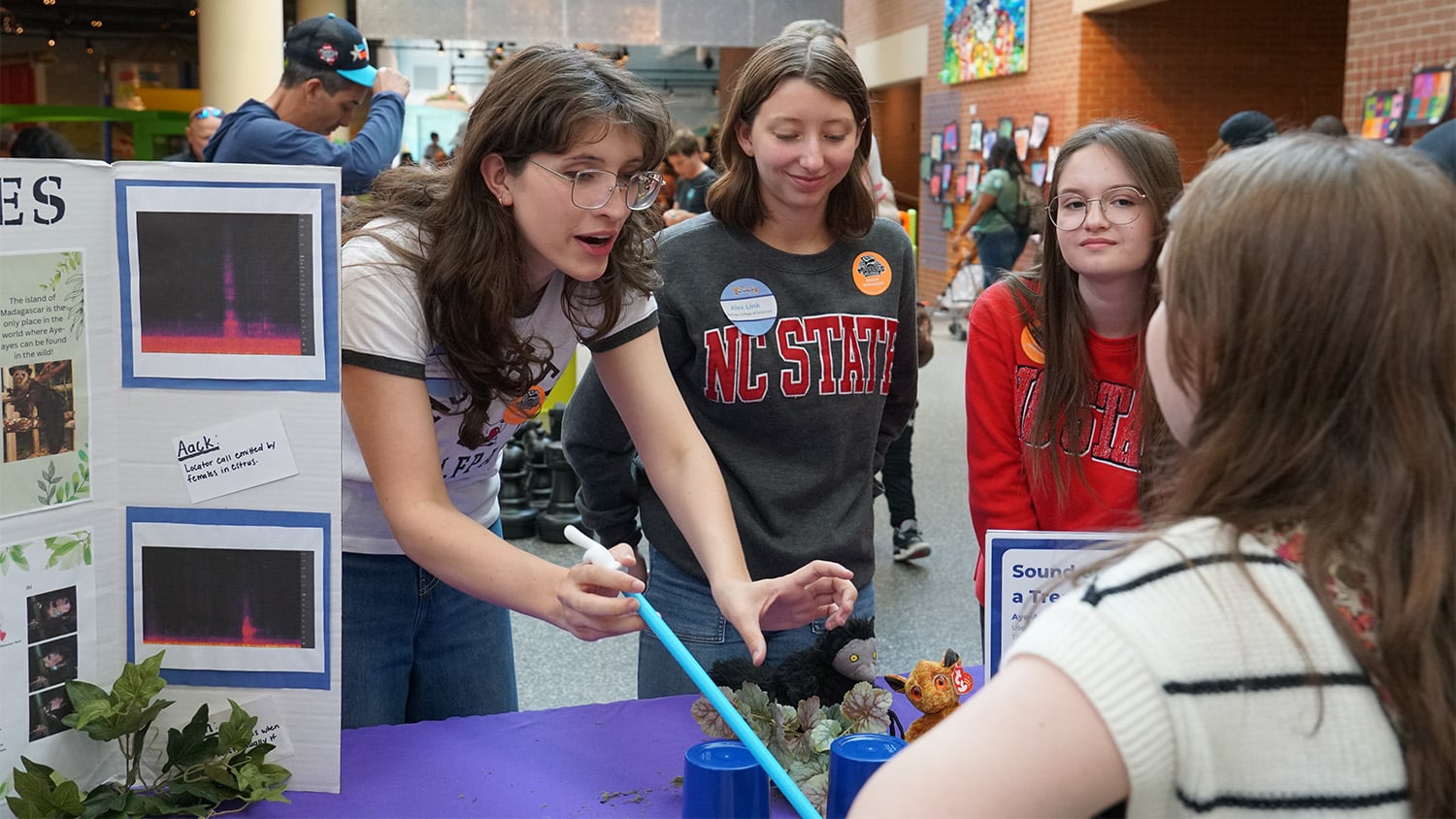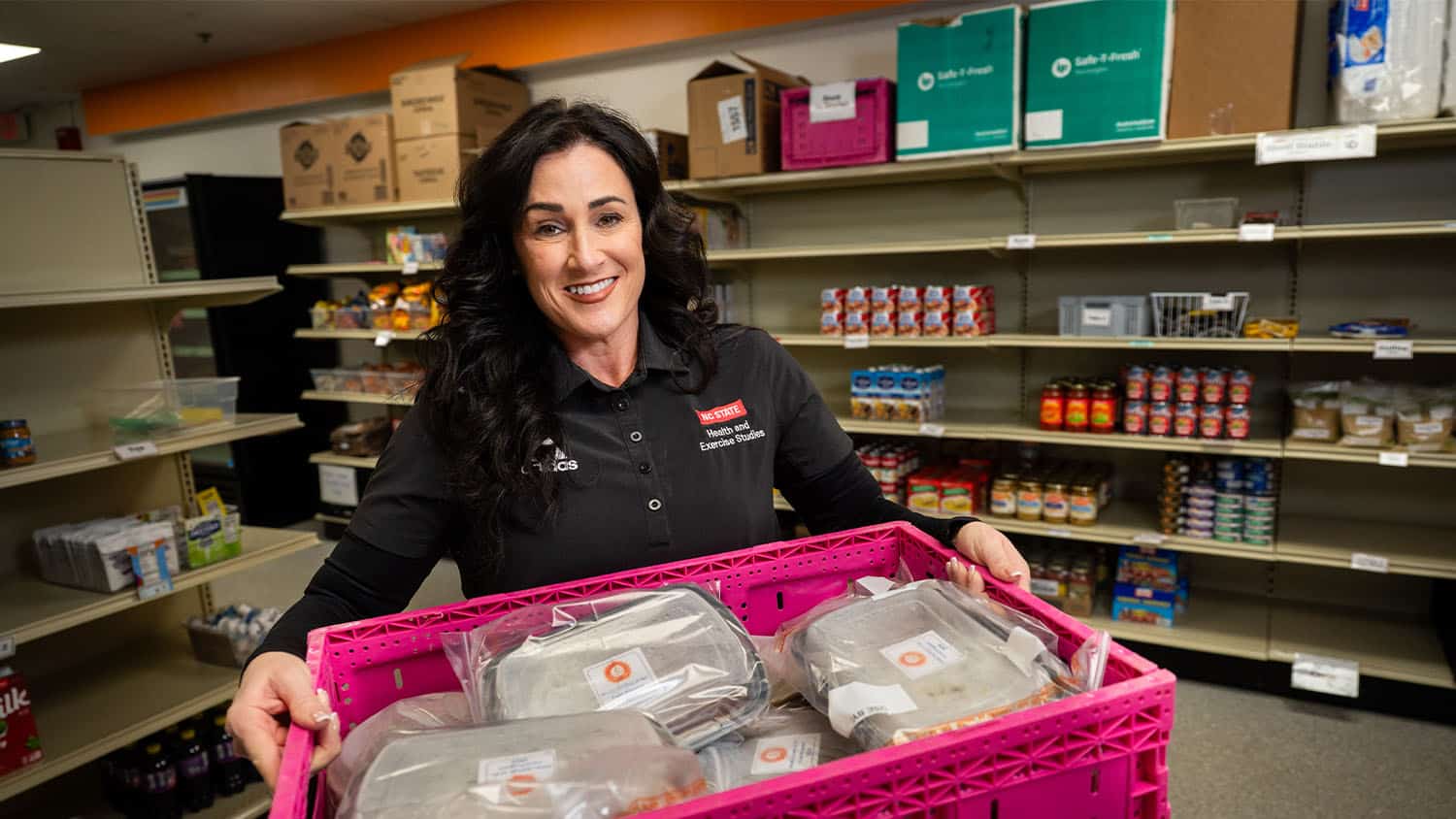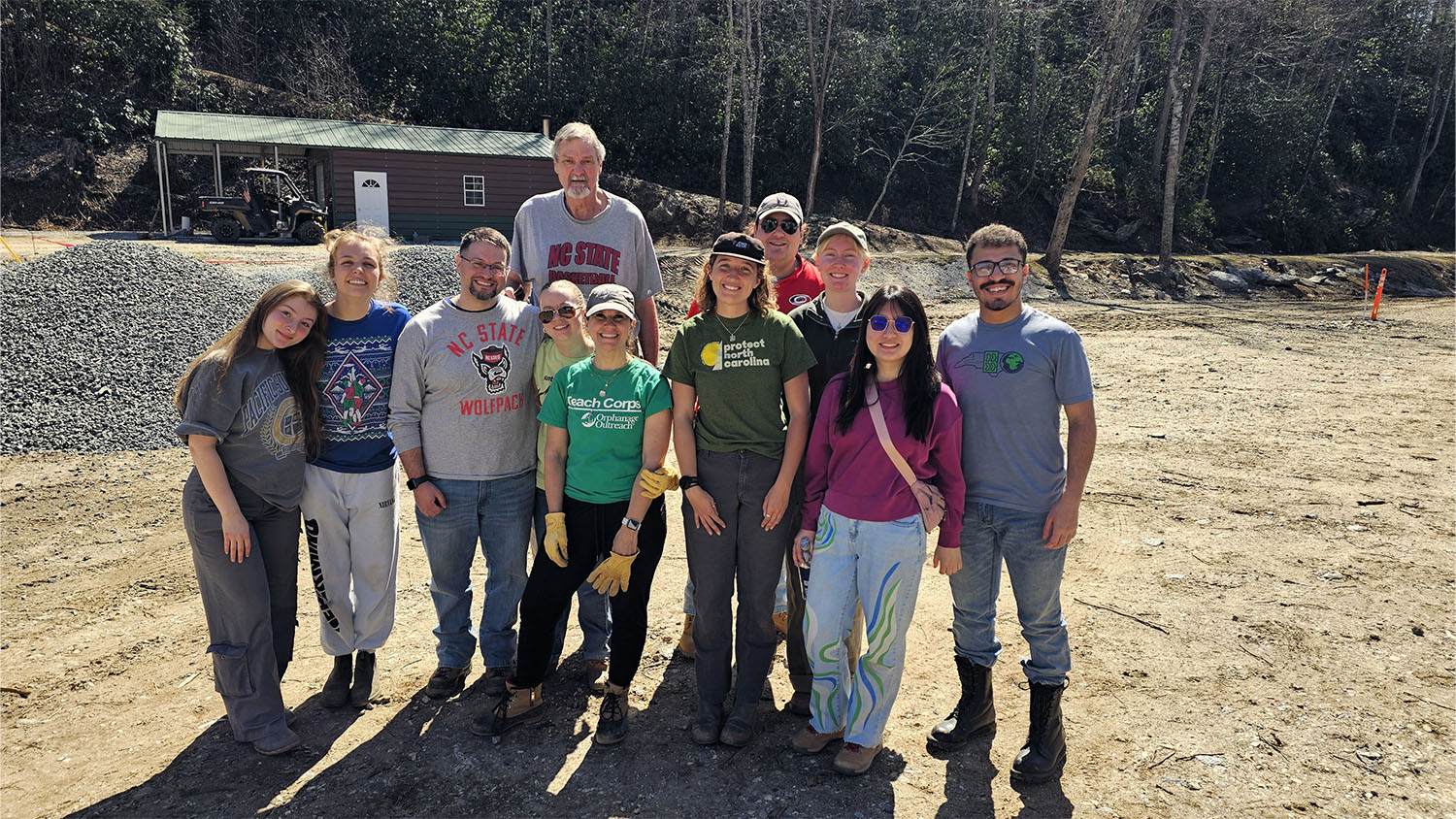Not Your Mom’s 4-H
With more than 7 million participants, 4-H is the nation’s largest youth organization and the only one based at land-grant universities like NC State. In July, NC Cooperative Extension and 4-H worked with Trading Spaces designer Edward Walker to develop a green design competition for 4-H’ers interested in fashion and interior design, encouraging their ambition while helping to change public perception of 4-H – an organization that does so much more than livestock exhibitions and canning competitions.
It’s an ideal fit for NC State: 4-H’s emphasis on interior design builds on the university’s strengths not just in agriculture and food science, but also in textiles and design. Already, the state 4-H organization is talking with N.C. State’s College of Design and College of Textiles about how to expand opportunities in those areas.
Prior to the annual 4-H Congress, Eco-Works Challenge participants were tasked with designing a youth study or office, multi-purpose room, dorm room or game/play room. Teams were required to use at least 25 percent recycled materials, and limited to a cash budget of $100 and $500 in donated or borrowed materials.
“It’s been a really successful program for us,” said Mitzi Downing, Extenstion 4-H Associate for Youth Development. “It’s an exciting way to get students interested in careers and help them focus on the science behind the environment and natural resources, stay engaged in their community and think about how their money can be stretched even further in this economy.”
The finalists – a three-person team from Wake County and a design duo from Brunswick County – gave life to their designs on the State Fairgrounds’ Expo Center floor, where they constructed 8’x8′ rooms under the watchful eye of Walker, a North Carolina native who offered feedback and suggestions throughout the room-building process.
Both design teams found creative ways to incorporate recycle materials into their room designs: the Wake County team’s final design included shelves made of bicycle inner tubes, car hubcaps and colorful reflectors, while the Brunswick team built a lamp stand from a bowling pin and plastic bowl and a gaming table, with legs made from re-used toddlers’ blue jeans and spray-painted red tennis shoes.
“I’m really impressed with the design ideas that these kids have come up with for these two rooms,” Walker said. “I love the idea and am passionate about getting kids involved in design – whether it be in interior design, fashion design or graphic design, and get them to think ‘Yes, I can approach a problem in design and tackle it with some authority.”
4-H is the youth development program of North Carolina Cooperative Extension, which has staff in all the state’s 100 counties. Cooperative Extension faculty members located at N.C. State University and N.C. A&T State University support the county extension programs.
- Categories:


